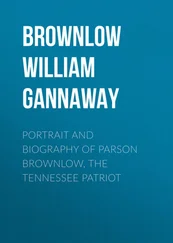Helen Gardener - An Unofficial Patriot
Здесь есть возможность читать онлайн «Helen Gardener - An Unofficial Patriot» — ознакомительный отрывок электронной книги совершенно бесплатно, а после прочтения отрывка купить полную версию. В некоторых случаях можно слушать аудио, скачать через торрент в формате fb2 и присутствует краткое содержание. Жанр: История, foreign_antique, foreign_prose, на английском языке. Описание произведения, (предисловие) а так же отзывы посетителей доступны на портале библиотеки ЛибКат.
- Название:An Unofficial Patriot
- Автор:
- Жанр:
- Год:неизвестен
- ISBN:нет данных
- Рейтинг книги:3 / 5. Голосов: 1
-
Избранное:Добавить в избранное
- Отзывы:
-
Ваша оценка:
- 60
- 1
- 2
- 3
- 4
- 5
An Unofficial Patriot: краткое содержание, описание и аннотация
Предлагаем к чтению аннотацию, описание, краткое содержание или предисловие (зависит от того, что написал сам автор книги «An Unofficial Patriot»). Если вы не нашли необходимую информацию о книге — напишите в комментариях, мы постараемся отыскать её.
An Unofficial Patriot — читать онлайн ознакомительный отрывок
Ниже представлен текст книги, разбитый по страницам. Система сохранения места последней прочитанной страницы, позволяет с удобством читать онлайн бесплатно книгу «An Unofficial Patriot», без необходимости каждый раз заново искать на чём Вы остановились. Поставьте закладку, и сможете в любой момент перейти на страницу, на которой закончили чтение.
Интервал:
Закладка:
Helen Gardener
An Unofficial Patriot
CHAPTER I. – A SON OF VIRGINIA
Griffith Davenport was a clergyman. I tell you this at the outset, so that you may be prepared to take sides with or against him, as is your trend and temperament. Perhaps, too, it is just as well for me to make another statement, which shall count in his favor or to his disadvantage, according to your own prejudices or convictions. He was a Southern man. He had been a slave-owner, and now he was neither the one nor the other. But in connection with, and in explanation of these last-mentioned facts, I may say that he had been a law-breaker in his native State, and was, at the very time of which I tell you, evading the law in the State of his adoption.
Both of these facts were the direct results of having been born to slave-ownership, and, at the same time, with a conscience which was of, and in harmony with, a different latitude and heredity. I trust that you will not infer from this last remark that I am of the opinion that the conscience of the Northern habitant is of more delicate fiber than is that of his Southern brother, who is of the same mental and social grade; for nothing could be farther from either the facts or my intentions herein. But that it is of a different type and trend is equally beyond controversy. The prickings of the one are as regular and as incessant, no doubt, as are those of the other; but the stimulating causes have different roots. Perhaps, too, it may sound strange to you to hear of one who can be spoken of as having a somewhat sensitive conscience and at the same time as being both a law-breaker and a law-evader. But certain it is, that with a less primitive conception of laws and of men, you will be able to adjust, to a nicety, the ideas therein conveyed, and also to realize how true it is that times, conditions, and environment sometimes determine the standard by which the rightfulness or wrongfulness of conduct is measured, and that it is quite within the possibilities for a man to be at once a law-breaker and a good man, or a law-keeper and a bad one.
But I am not intending to warp your judgment in advance, and you are to remember that whatever my opinion of the quality of the Rev. Griffith Davenport's conduct may be, there is another side to the matter, and that I shall not take it greatly to heart if you should find yourself on the other side.
But if, as I have sometimes heard readers say – who looked upon themselves as of a somewhat superior order – you do not take an interest in people who have placed themselves outside of the beaten pathway of legal regularity, it will be just as well for you to lay this little story aside now, for, as I have said, it is a story of a clergyman, a slave-holder, a law-breaker, and a law-evader, which, I admit, does not at the first blush present a picture to the mind of a person in whom you and I, my lofty and immaculate friend, would be greatly interested, or with whom we would care to associate for any protracted period. Still, I intend to tell the story, and in order to give you a perfectly clear idea of how all the more important events in this curiously complicated life came about, I shall be compelled to go back to the boyhood of young Davenport, so that you may catch a glimpse of the life and training, which were a prelude and a preparation – if you do not wish to look upon them as exactly a justification – of and for the later years of the life, which experienced such strange trials, complications and vicissitudes.
It was in the year eighteen hundred and twenty-four that the great sea of Methodism first began to beat with a force that was like that of a succession of mighty tidal waves upon the previously placid State of Virginia. Young Davenport had, at that time, just turned his fifteenth year, but it was not until nearly four years later, when the tide of interest and excitement had swept with a power and influence impossible to picture in these days of religious indifference and critical inquiry, into the homes and over the barriers of long-established things, that young Griffith's home felt the invasion to be a thing which it behooved gentlemen to consider seriously, or even to recognize as existing, if one may so express it, in an official sense.
As I suggested before, it would be difficult, in these later and less emotional days, when every school-boy knows of doubts and questionings in the minds of his elders, to picture adequately the serene lack of all such doubts and questionings in Griffith Davenport's boyhood.
To be sure there were, and, I venture to assume, always had been, disagreement and disputes over forms, methods, and meanings; but these were not fundamental doubts of fundamental beliefs, of which it would be entirely safe to say that young Davenport had never in his whole life heard one little doubt expressed or intimated, or that a question existed that could tend to make any one suspect that there were or could be unsettled realms in the system and plan of salvation as laid down by Christianity. He supposed, of course, that Christianity was an incontrovertible, fixed, and final religion. Different sects he knew there were, but all of these accepted the basic principle of Christianity. All sprang from the same root. Some grew eastward, some westward, and some made straight for heaven like the center shaft of a great oak; but each and all were true limbs of the same healthful trunk whose roots found anchorage in the bed-rock of eternal truth. He did not know that there were other trees quite as vigorous and even more expansive, each of which had sprung from the seed of human longing to solve the unsolvable. The "heathen" he had heard of, of course, in a condemnatory or pitying way, but he did not know or think of their worship as "religion." It was "fetichism," idolatry, superstition. Of Deists, he had heard, if at all, but vaguely; for it must be remembered that in the year of our blessed Lord eighteen hundred and twenty-seven the name of that famous Deist, Thomas Paine, who had done so much for the liberty and dignity of the great new nation, was not honored as it is to-day, and, indeed, so dense was the philosophical ignorance of that time, that the mention of the name of the author-hero of the Revolution was seldom made except in execration and contumely. Even of the Jews, from whom his religion came, Griffith had heard no good. They had slain the Christ, had they not? Their own God condemned the act, did he not?
Young Davenport supposed that this was all true. He also supposed that because of a blunder, made in ignorance and passion, in an age long past, a whole race had ever since been under the chastising hand of a just Jehovah, who had decreed that their humiliation and the expiation of the fatal blunder should be eternal. That there were Jews who were to-day good, devout and religious who still approved the attitude of Pilate toward the Christ, he did not know. He counted this class, therefore, as in some sort, Christians also. Mistaken in method, no doubt; superstitious and blundering perhaps; but still secretly filled with sorrow and shame for the awful crime of their race, and accepting the verdict of God and the disciplining punishment of time, he had no doubt of their final acceptance of what he believed established as eternal Truth, and their consequent redemption and salvation. The easy-going, gentle Episcopalianism of his home-training, with its morning and evening, perfunctory, family prayers, its "table grace" and its Sunday service, where all the leading families of the county were to be seen, and where the Rector read with so much finish and the choir sang so divinely, the same old hymns, week after week, had so far been as much a part of his life, – and were accepted as mechanically, – as were the daily meals, the unpaid negro labor, and the fact that his father, the old "Squire," sat in the best pew, because he had built and endowed the finest church in the State.
Читать дальшеИнтервал:
Закладка:
Похожие книги на «An Unofficial Patriot»
Представляем Вашему вниманию похожие книги на «An Unofficial Patriot» списком для выбора. Мы отобрали схожую по названию и смыслу литературу в надежде предоставить читателям больше вариантов отыскать новые, интересные, ещё непрочитанные произведения.
Обсуждение, отзывы о книге «An Unofficial Patriot» и просто собственные мнения читателей. Оставьте ваши комментарии, напишите, что Вы думаете о произведении, его смысле или главных героях. Укажите что конкретно понравилось, а что нет, и почему Вы так считаете.











